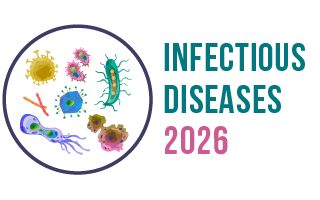4th International Conference on
Infectious Diseases
September 09-10, 2026 | Barcelona, Spain

Address: Avinguda Del Maresme 78 Ronda De Dalt Exit 15, 08940 Comella de Llobregat, Barcelona, Spain
Infectious Diseases 2026

Teda Health Science College, Ethiopia
Abstract:
Background: Hepatitis B infection due to poor practices can result in prolonged hospital stays, long-term disability, increased microbial resistance, financial burdens and death. There has been no comprehensive study assessing the practice level of hepatitis B virus infection prevention in Ethiopia despite the high risk of exposure. Thus, this review aimed to assess practice on hepatitis B virus infection prevention in Ethiopia.Methods: For published studies, we conducted a thorough search of the PubMed, African Journal Online, Science Direct, Cochrane Library and Google Scholar databases. The data were exported to STATA version 11 (STATA Corp LLC) for meta-analysis. Heterogeneity between the results of the primary studies was assessed using Cochran’s Q chi-square test and quantified with I2 statistics. A random effect model, specifically the DerSimonian and Laird pooled estimate method, was used due to the presence of heterogeneity between the included articles.
Results and conclusions: Initially, 1738 articles were retrieved through electronic database searching. Of these, 910 were from Google Scholar, 4 from PubMed, 378 from Science Direct, 421 from African Journal Online and 25 from the Cochrane Library. The pooled estimate showed that 41.54% (95% CI: 33.81–49.27, P
Biography:
Worku Chekol Tassew is a dedicated health science educator at Teda Health Science College, Ethiopia, committed to advancing healthcare education and improving community health through teaching and research.
